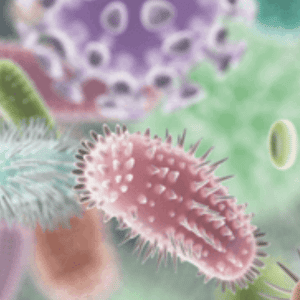Keeping your Immune System Healthy
In the past I have done newsletters on the Immune System and Natural Flu Remedies. Believing in natural health, I seldom take antibiotics, however, this month I will share with you the concern pertaining to Antibiotic Resistant because it is important. Antibiotic Resistant or antimicrobial resistance is the ability that some bacteria and microorganisms have to survive and reproduce even when they are living in an environment that contains an antibiotic. Surviving the antibiotic gives them a resistance to the antibiotic.
Bacteria are Becoming More Resistant to Antibiotics
There are several ways antibiotic resistance occurs. Sometimes when you take an antibiotic, the antibiotic works by interfering with the synthesis of the cell walls and sometimes the bacteria have figured out how to mutate and survive because they have been exposed to the same antibiotic repeatedly. There are other ways that also affect the DNA. Regardless of the way resistance occurs it is a very real concern.
Antibiotics are effective against bacteria which are single celled organisms. Antibiotics are not effective against viruses which are smaller than bacteria and require the body's cells to survive because they can not live outside the body. According to the CDC, viruses that should not be treated with antibiotics are colds, flu, most coughs and bronchitis, sore throats (except strep throat), some ear infections and most of the respiratory infections.
What Bacteria is Antibiotic Resistant
Antibiotic Resistance to Bacteria is becoming a crisis. It is new, it started shortly after penicillin was introduced almost 70 years ago. According to the CDC we have several diseases that are antibiotic or antimicrobial resistant. The more familiar ones are:

- Acometpbacter - a group of bacteria which is commonly found in soil and water.
- Anthrax which is caused by a bacteria that forms spores.
- Gonorrhea which is a sexually transmitted disease.
- MRSA - first reported in 1961 in Britain and the most frequently identified pathogen in US hospitals with some being resistant to Vancomyocin currently leaving no alternatives for treatment.
- Shigella which causes diarrhea in humans.
- Streptococcus penumoniae which is the most frequent cause of pneumonia, sinusitis, and ear infections.
- Tuberculosis
- Typhoid Fever
- Influenza
- Candida
- Malaria
What Contributes to Antibiotic Resistant
Many things contribute to antibiotic resistance from over use to the dilution of antibiotics in third world countries. One contributor of great concern, is the use of antibiotics in food producing animals and the resistance of those antibiotics being transferred to us. Our livestock is fed nearly half the antibiotics manufactured as a preventative measure which can result and sometimes has resulted in meat containing drug resistant diseases such as salmonella newport. The FDA watches this area closely and works with veterinarians and animal producing organizations to monitor it. In fact there is an agency specifically set up to monitor this concern and it is known as NARMS (National Antimicrobial Resistance Monitoring System) and was set up in 1996. You can also view the article from the CDC on 5 more things to know about antimicrobial resistance.
We now live in a global world and people are traveling all around the globe leading to health specialists all over the globe watching for signs of potential pandemics. We have come so far since the first dose of penicillin, have we over indulged and further harming ourselves?
What Can you Do to Help?
- Do not expect to take antibiotics for the cold and flu, they do not work and are not beneficial to you, the germs or anyone else.
- If you are prescribed an antibiotic please take the full prescription. If you do not take the full prescription you could be creating the perfect setting for resistance.
- Do not save your antibiotics to take some time in the future because you feel better. You will fail on two counts, your current illness and gambling on your future illness.
- Do not take someone else's antibiotics.
- Wash your hands and focus on prevention.
- Stay home when you are sick, you do not need to spread your germs.
- Add supplements to your routine that support a healthy immune system. Beta Glucan and Thai Go are two of my favorites for overall support.

It is very important to take care of yourself and to keep your immune system in tip top shape. Since 80% of our immune system resides in our gut, a healthy gut microbiota is important. It is also important to manage your stress and to eat a diet full of whole foods including fruits, vegetables, green leafy vegetables, lean meats and healthy fats. There are also products on the market, such as Silver Shield and My Immune defense which can help. You can view my favorite Natures Sunshine Products that Support a Healthy Immune System. When you have a strong immune system and take care of yourself, your body is better able to fight off viruses and minor bacterial infections.
Written by Mara Gerke, CA, CNHP, All Rights Reserved.